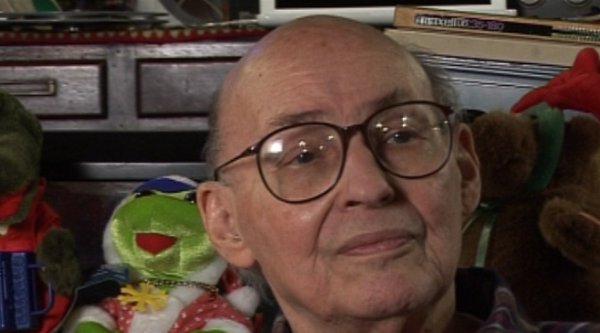NEXT STORY

Stanley Kubrick scraps the tetrahedron
RELATED STORIES

NEXT STORY

Stanley Kubrick scraps the tetrahedron
RELATED STORIES


|
Views | Duration | |
|---|---|---|---|
| 91. The impact of the Society of Mind | 1719 | 03:06 | |
| 92. Why the Society of Mind is crucial for understanding... | 1685 | 01:56 | |
| 93. A theory of why evolution is a slow process | 1706 | 03:15 | |
| 94. Biological plausability for the Society of Mind theory | 1551 | 04:04 | |
| 95. Advising Stanley Kubrick on 2001: A Space Odyssey | 2 | 1965 | 02:51 |
| 96. Stanley Kubrick forgets he made Dr Strangelove | 2 | 1985 | 01:38 |
| 97. What was Stanley Kubrick like? | 2 | 2384 | 01:03 |
| 98. Stanley Kubrick scraps the tetrahedron | 1 | 1940 | 02:11 |
| 99. I created part of 2001: A Space Odyssey | 1 | 1797 | 00:46 |
| 100. Warren McCulloch: For whom the world was a stage | 1819 | 04:25 |


[Q] What was he like then to be with? I mean... well...
The amazing thing about him was that you know he makes movies. And, Super Balls had just come out. So I had a pocketful of Super Balls and we were walking along and I took one out and started bouncing it and Stanley was just completely entranced and he grabbed the Super Ball and he bounced it and it went way up and then, he threw it over a house and ran around and caught it back and... for the next 10 minutes, it was nothing but Super Balls, but... the part that amazed me was that... we... we kept walking around this place and talking and he kept bringing out this 35 mm camera – I think it was an Argus or something, a little cheap –and he’s always taking pictures and I’m thinking: This movie maker actually likes taking pictures. There’s something wrong with this picture.
Marvin Minsky (1927-2016) was one of the pioneers of the field of Artificial Intelligence, founding the MIT AI lab in 1970. He also made many contributions to the fields of mathematics, cognitive psychology, robotics, optics and computational linguistics. Since the 1950s, he had been attempting to define and explain human cognition, the ideas of which can be found in his two books, The Emotion Machine and The Society of Mind. His many inventions include the first confocal scanning microscope, the first neural network simulator (SNARC) and the first LOGO 'turtle'.
Title: What was Stanley Kubrick like?
Listeners: Christopher Sykes
Christopher Sykes is a London-based television producer and director who has made a number of documentary films for BBC TV, Channel 4 and PBS.
Tags: Stanley Kubrick
Duration: 1 minute, 4 seconds
Date story recorded: 29-31 Jan 2011
Date story went live: 12 May 2011